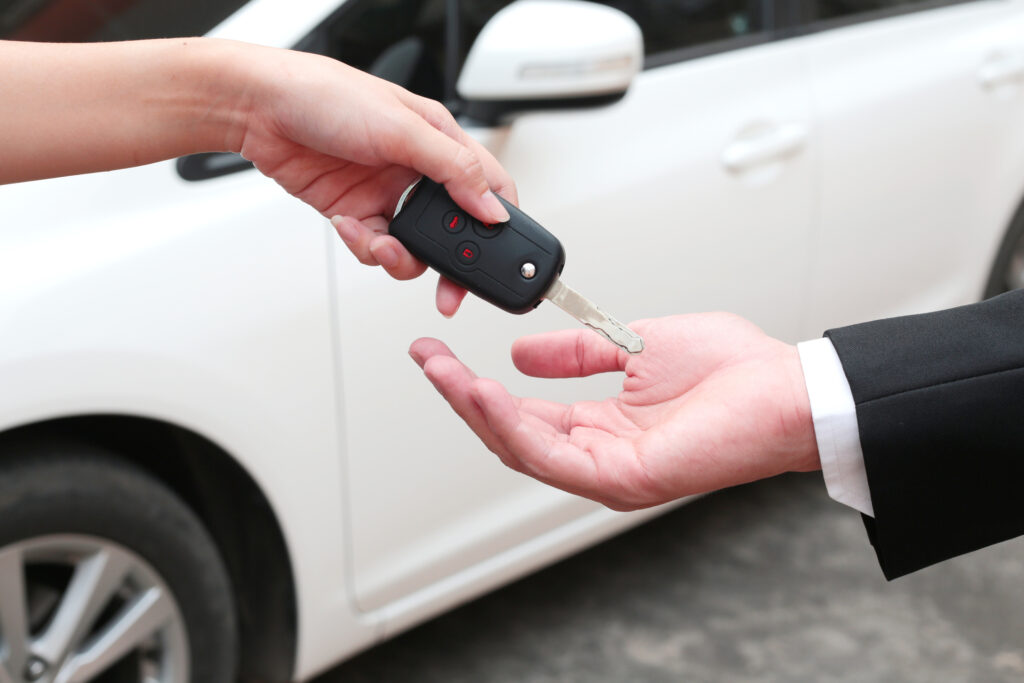 While most repossessions are initiated by the lender, sometimes it’s the borrower that decides to voluntarily surrender his or her vehicle. Whether or not, after a repossession it’s important for the borrower to understand his or her financial responsibility to satisfy the loan once the lender has taken possession of the vehicle.
While most repossessions are initiated by the lender, sometimes it’s the borrower that decides to voluntarily surrender his or her vehicle. Whether or not, after a repossession it’s important for the borrower to understand his or her financial responsibility to satisfy the loan once the lender has taken possession of the vehicle.
Surrendering Your Vehicle
The choice to voluntarily surrender your vehicle is not easy decision. Borrowers understand that the lender has the right to repossess the vehicle if they  can’t meet the terms agreed upon in their auto loan agreement.
can’t meet the terms agreed upon in their auto loan agreement.
After payments are missed or late, the lender could come to take the vehicle at any time of day or night. Repossessions are stressful and usually occur at the most inopportune times.
Often, borrowers faced with the possibility of repossession may choose to voluntarily give their car back. A voluntary repossession allows the borrower to have some control and address financial troubles in a less stressful manner, and without the shock of finding the car missing.
Ten Advantages of a Voluntary Repossession:
1. Arranged return of the vehicle – date, time and location
2. Removal of all personal belongings from the vehicle
3. Removal of all important documents from the vehicle
4. Removal of the license place
5. Photograph the condition of the vehicle – interior & exterior
6. Take odometer reading to know precise mileage on the vehicle
7. Contact auto insurance carrier to inform of the voluntary repossession
8. Deliver the vehicle and keys to a convenient location
9. May not have to pay a repossession fee
10. May not have to pay storage fee
Voluntary Repossession Will Not Cancel Your Loan
A voluntary repossession does not dismiss the responsibility that the borrower has to satisfy the loan. The financial obligation and collection process from a voluntary repossession are the same as a regular repossession.
 First, after taking back the vehicle, the lender will send a repossession notice, or Notice of Intent to Sell Property, to the borrower. This letter states the location of the vehicle, terms to get the vehicle back, where to retrieve personal property, and where and when the vehicle will be sold.
First, after taking back the vehicle, the lender will send a repossession notice, or Notice of Intent to Sell Property, to the borrower. This letter states the location of the vehicle, terms to get the vehicle back, where to retrieve personal property, and where and when the vehicle will be sold.
Second, once the vehicle has been sold, the borrower will receive a letter called a Deficiency Notice. This notice informs the borrower of the selling price of their vehicle and shows the calculation of any remaining balance owed on to satisfy the loan.
Collection of the deficient balance may be handled by the lender’s collection department, or the lender may assign this task to a third-party collector. If the collector is unsuccessful in collecting the balance, the lender may choose to file a lawsuit against the borrower to collect this balance.
Repossession and Your Credit Report
Both voluntary surrender and lender-initiated repossession carry negative weight on a credit report. It’s not just the repossession that is listed on credit reports, but also, the missed or late payments that may have led to the repossession in the first place.
These negative listings can remain on your credit report for up to seven and one-half years, jeopardizing the ability to obtain another auto loan, or one with favorable credit terms. In addition, repossessions could have other negative consequences such as creditors raising interest rates, the reduction of credit limits, or an overall drop in credit scores.
Seek Legal Help After Repossession
 Flitter Milz is a nationally recognized consumer protection law firm that pursues matters against banks, credit unions and financial institutions for the wrongful repossession of cars, truck, motorcycles, RVs and boats. Contact Us for a no cost legal evaluation to determine whether your consumer rights have been violated. Pictured: Cary Flitter (center), Andy Milz (left), Jody López-Jacobs (right)
Flitter Milz is a nationally recognized consumer protection law firm that pursues matters against banks, credit unions and financial institutions for the wrongful repossession of cars, truck, motorcycles, RVs and boats. Contact Us for a no cost legal evaluation to determine whether your consumer rights have been violated. Pictured: Cary Flitter (center), Andy Milz (left), Jody López-Jacobs (right)








